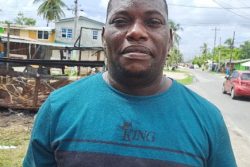Rationing and blackouts have afflicted the South American oil exporter since late 2009, due mainly to a drought that has cut water levels at hydroelectric installations normally supplying more than two-thirds of power needs.
The crisis may cause a second year of economic contraction in Venezuela and is also weighing on Chavez’s approval ratings ahead of a legislative election in September that he and opponents are casting as a referendum on his rule.
“The squalid ones are hoping it won’t rain,” Chavez said late on Tuesday, using his usual term for the opposition.
“But it’s going to rain, you’ll see, because God is a ‘Bolivarian.’ God cannot be squalid. Nature is with us,” the socialist leader added during an event with athletes.
In power for 11 years, Chavez portrays his “21st century socialism” as a revival of the ideals of South American independence hero Simon Bolivar, even changing Venezuela’s name to the “Bolivarian Republic of Venezuela.”
Venezuela’s next rainy season is due around May, although meteorologists say there may be delays this year due to the El Nino weather phenomenon.
The government has introduced rationing across Venezuela and is threatening fines and cutoffs to large consumers who fail to reduce power use by 20 percent.
“I apologize to all the people who are suffering electricity rationing. But I’ve said it since the start of the year, we have to do it. It’s like being put on a diet, in this case an electricity diet,” Chavez said.
Authorities say the main reservoir, El Guri, is close to “collapse,” possibly in May or June, if there is no rain soon.
“Guri is 13 meters (43 feet) away from what they call the level of collapse,” Chavez said. “It would just shut down. We’d have to close the Guri plants which supply electricity for half of Venezuela. That’s the reality.”







